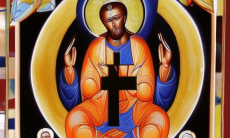Introduction
Perseverance is a vital aspect of the spiritual journey, especially in the Christian faith. It involves the steadfast commitment to a set of practices and virtues in the face of challenges, difficulties, and spiritual dryness. The Philokalia, a collection of spiritual texts by Christian monks and mystics, emphasizes the crucial role of perseverance in experiencing God’s love and grace. St. Mark the Ascetic, St. Maximus the Confessor, and St. Hesychios the Priest all stress the importance of persevering in our efforts toward spiritual growth. This blog aims to explore the teachings of the Philokalia and how they encourage us to cultivate perseverance on our spiritual journey.
Cultivating Perseverance
The Philokalia affirms that it is through ongoing effort that spiritual progress is made. St. Maximus the Confessor, one of the most prominent writers in Philokalia, states that perseverance is essential in becoming a true disciple of Christ. He writes, “The one who truly loves the Lord must strive to please Him, to arrange his life according to His will, and to persevere without ever ceasing” (Philokalia, Vol. 2). Perseverance is thus the key to the transformation we seek in our relationship with God.
Perseverance is not only about grinding through spiritual practices but also about cultivating virtues. St. Mark the Ascetic writes in the Philokalia, “The beginning of everything good is love for God, but the consummation of everything good is the possession of Him who is love” (Philokalia, Vol. 1). This quote highlights that the ultimate aim of perseverance is to attain the love of God. To achieve this, we must cultivate virtues such as humility, patience, and gratitude. These virtues help us remain steadfast in our spiritual practices and allow us to persevere through challenges.
The Philokalia also emphasizes the importance of patience in cultivating perseverance. St. Hesychios the Priest writes, “Be patient and you will acquire every virtue” (Philokalia, Vol. 1). Cultivating perseverance requires patience, especially in the face of spiritual dryness and setbacks. With patience, we can trust the journey and continue to strive toward spiritual growth. As we encounter obstacles or delays, we can appreciate the learning opportunities they present us.
Perseverance is not just an individual act; it is a communal endeavor. The teachings of the Philokalia highlight the importance of the Christian community in cultivating perseverance. St. John Cassian writes, “As long as we are in this life, we are never safe from falling; and therefore we need more than anything else to pray to God always to uphold us lest a fall befalls us unawares, and to grant us perseverance in good works” (Philokalia, Vol. 1). Our perseverance is strengthened when we are supported by other Christians who share our commitment to spiritual growth. The Christian community provides us with the guidance, encouragement, and accountability that we require to persevere.
Conclusion
Perseverance is a vital aspect of the spiritual journey, and the teachings of the Philokalia have valuable insights for Christians seeking to cultivate perseverance. The Philokalia encourages us to remain steadfast in our spiritual practices, cultivate virtues such as humility and patience, and collaborate with other Christians on their spiritual journeys. The Christian life is not always easy, but perseverance helps us to experience God’s love, grace, and transformation in our lives. As St. Mark the Ascetic writes, “Do not be surprised that you fall every day; do not give up, but stand your ground courageously” (Philokalia, Vol. 1). Let us strive to persevere in our spiritual practices and grow in our relationship with God.





